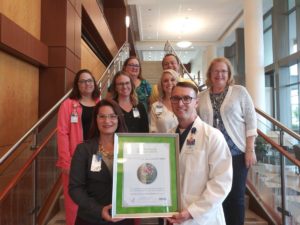The biggest expense can be time spent as an inpatient in the hospital and the expenses related to life-time immunosuppressant drugs. The Social Worker will review this information with you during your evaluation day. When traveling any distance to receive a transplant, the cost of food, lodging and transportation need to be considered. Depending on the distance to the transplant center and the time limits imposed by the center, last-minute air travel may be required when an organ becomes available. Patients need to include in their Transplant Plans, the cost of food and lodging for family while they are in the hospital. Costs can vary from city to city.
Other costs directly associated with transplantation include:
- Transplant surgeons, anesthesia and operating room personnel
- Recovery and in-hospital stay
- Patient transplant evaluation
- Recovery of organs
- Transportation to and from the transplant center – not only for the transplant, but for patient evaluation and check-ups
- Laboratory tests
- Physical or occupational therapy and other rehabilitation
- The cost of anti-rejection drugs (immunosuppressants)and other medications, which can easily exceed $10,000 per year for the rest of the recipient’s life
- Medicare Part B Premiums
- Non-covered medical costs
Costs Related to Living Donation
Health insurance coverage varies for living donation. If the recipient is covered by a private insurance plan, the evaluation and surgery expenses related to the donation will most likely be covered under the recipient’s insurance. Most insurance companies—including Medicare—pay 100 percent of the donor’s expenses. Most insurance companies do not cover transportation expenses, food, lodging, long distance phone calls, childcare or lost wages. You may contact the Center for Transplant Services at 1-888-340-4448 to speak with the Transplant Social Worker for questions regarding these costs.
Financing Transplantation
Few patients are able to pay all of the costs of transplantation from a single source. For example, some may be able to finance the transplant procedure through insurance coverage and pay for other expenses by drawing on savings accounts, other private funds or by selling some assets. Most likely, patients will have to rely on a combination of funding sources. The transplant center social worker should be informed of any changes that may impact the patient’s readiness for transplant.






